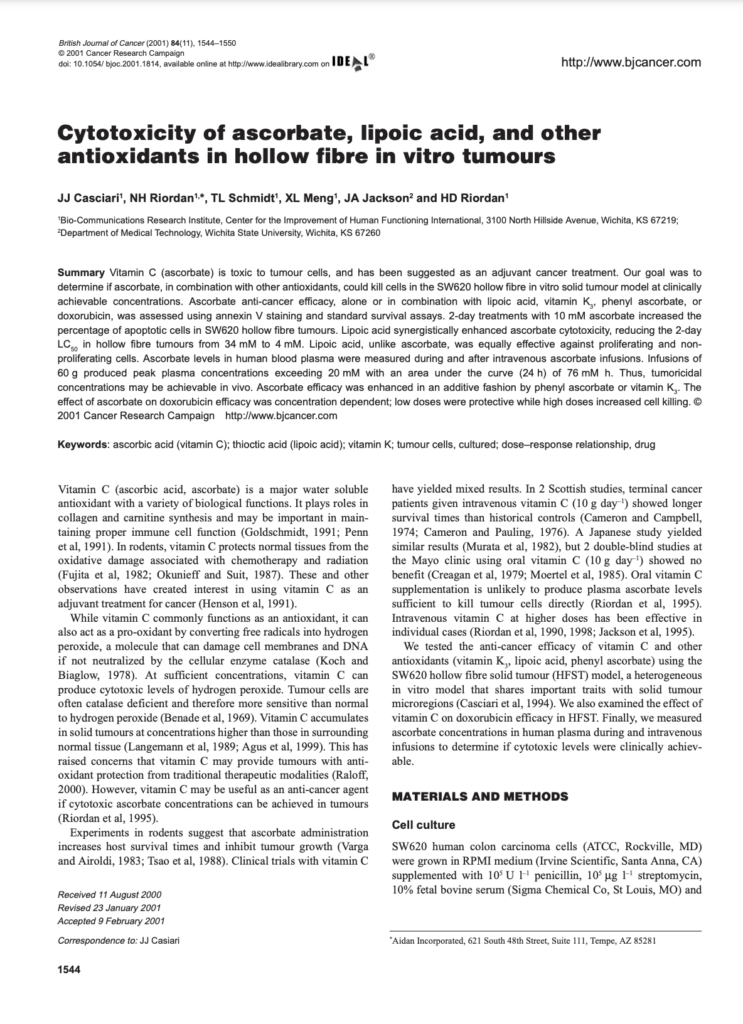June 2001
Cytotoxicity of ascorbate, lipoic acid, and other antioxidants in hollow fibre in vitro tumours.
Journal Citation
Br J Cancer. 2001 Jun 1;84(11):1544-50
Authors
Casciari JJ, Riordan NH, Schmidt TL, Meng XL, Jackson JA, Riordan HD.
Abstract
Vitamin C (ascorbate) is toxic to tumour cells, and has been suggested as an adjuvant cancer treatment. Our goal was to determine if ascorbate, in combination with other antioxidants, could kill cells in the SW620 hollow fibre in vitro solid tumour model at clinically achievable concentrations. Ascorbate anti-cancer efficacy, alone or in combination with lipoic acid, vitamin K3, phenyl ascorbate, or doxorubicin, was assessed using annexin V staining and standard survival assays. 2-day treatments with 10 mM ascorbate increased the percentage of apoptotic cells in SW620 hollow fibre tumours. Lipoic acid synergistically enhanced ascorbate cytotoxicity, reducing the 2-day LC(50)in hollow fibre tumours from 34 mM to 4 mM. Lipoic acid, unlike ascorbate, was equally effective against proliferating and non-proliferating cells. Ascorbate levels in human blood plasma were measured during and after intravenous ascorbate infusions. Infusions of 60 g produced peak plasma concentrations exceeding 20 mM with an area under the curve (24 h) of 76 mM h. Thus, tumoricidal concentrations may be achievable in vivo. Ascorbate efficacy was enhanced in an additive fashion by phenyl ascorbate or vitamin K3. The effect of ascorbate on doxorubicin efficacy was concentration dependent; low doses were protective while high doses increased cell killing.

